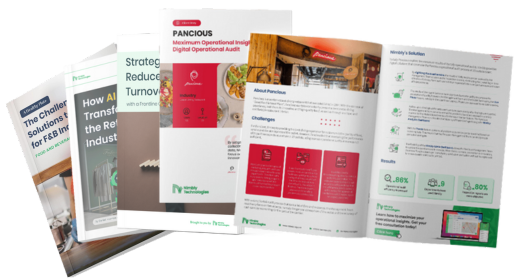

Palm oil certification brings more than just prestige; here are some of the most impactful, substantial benefits for your company.
RSPO (Roundtable on Sustainable Palm Oil) is an organization that regulates stakeholders in various industrial sectors related to the production, processing, and sale of palm oil. The general objective is to ensure the sustainability of the palm oil industry and maintaining environmentally friendly operation standards.
Currently, there are more than 1000 palm oil producing companies from 50 countries that have received RSPO certification. Over time, more and more palm oil companies are seeking certification from the RSPO. Since 2011, 10% of total global palm oil production has been equipped with RSPO certification. This number is equal to more than 5 million tonnes of production per year.
Although not mandatory, the ownership of certification has a number of benefits for palm oil companies. Here are some of those benefits:
Even though the company’s internal development is always carried out every year, increasing standards through certification will enhance the company’s overall documentation, thus leading to myriad “micro-improvements” of quality in all areas.
Since the certification process provides credible and thorough data, you will be able to take concrete steps to improve quality incrementally. In addition, the use of good production standards through certification gives a solid uniformity across estates, resulting in a series of nation-wide improvements, like reducing the use of pesticide and herbicide cost and reducing the accident rate.

An ideal palm oil industry will not neglect the problems of forest destruction, preservation of flora and fauna, as well as the welfare of communities around agricultural land. As we have known, harmonious horizontal relations between companies and the local community can lead to fewer social conflicts as well as associated costs.
The placatory relation will also increase trust among local stakeholders, government, labor, civil society, and buyers, creating more efficient production and deployment of social development funds in the long term. It also presents stability and reduces friction with different “layers” of society.
For many companies, staff and labor turnover is a serious internal problem that hinders the long-term increase in production. Internal problems, such as lack of adequate safety in the workplace and conflicting managerial decisions, are often the main causes of these problems.
Luckily, participating in a certification program that examines all aspects of the palm oil industry, including job welfare issues, can provide more “satisfaction” for staff and labor involved in it. As a result, it reduces the staff turnover percentage and improves the motivation of white collar-staff.
Currently, Green Palm provides four supply chain options to support the RSPO-backed companies: Book & Claim, Identity Preserved, Segregated, and Mass Balance. Each option offers different premiums based on the quality and the processing of the product.
In general, the price of certified palm oil products is higher in the market. For instance, Book and Claim premiums ranging US$0 to $10 ($3.00 at the time of writing), while UTZ Segregated premiums vary from US$15 to $50. Therefore, it is safe to say that palm oil certification is proven to generate bigger revenue for companies.
Moreover, RSPO also provides easier market access to international markets. Its certification is a key for market positioning and defense for those palm oil companies that mainly sell its product to the EU and North America.
Companies that produce RSPO certified products will gain better access to corporate financing via increased private equity and M&A attractiveness. Right now, those companies are subject to the potential Project Finance and credit conditionality in more than 70 global Equator Banks, IFC, and Development Finance Institutions across the globe.
The strong trust of providing more capital for the sustainable palm oil industry through RSPO certification is a result of constant pressure given to the buyers of palm oil from responsible investors, including UNPRI signatories.
Palm oil certification provides many advantages for companies, namely:
Finally, we all know that conducting field assessments and managing the reporting process is a tedious task, even for an RSPO certified and well-established palm oil company. To simplify the process, we recommend Nimbly , a digital audit tool. This software provides a number of features, from the digitized checklist to automatic report generation, to help your company grow.
Nimbly transforms manual operational audit processes into app-based checklists for front-line workers to generate reports instantly, centralize insights in real-time, and ensure thorough issue resolution.

